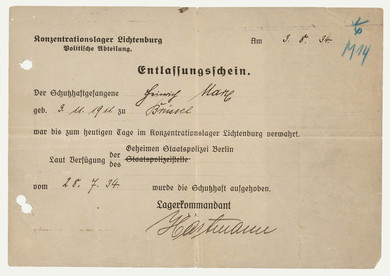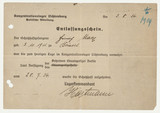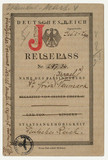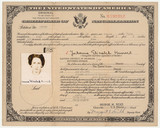2.1 Everyday Life
2.1 Everyday Life
For many, everyday life had already changed dramatically even before exile as the result of increasing persecution and violence. Successful escape meant fleeing from this (immediate) situation, yet many then found it difficult to return to their familiar everyday routines.
Resuming everyday life required reorientation and adjustment in many different aspects. Bureaucratic, linguistic and cultural barriers had to be overcome. The fugitives had to find acceptable housing and resume their participation in social life. This often proved to be an exhausting process.
During the Second World War many exiles were repeatedly wrenched from their everyday lives, the persecution caught up with them or they were declared "enemy aliens" in their new host country.






